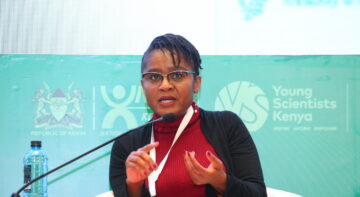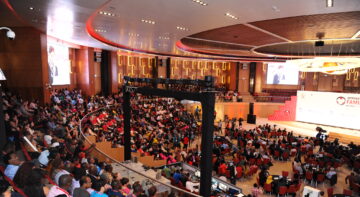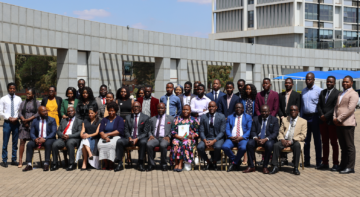Blogs

The concept of peer learning has its roots in the classroom and can be best described as a reciprocal two-way sharing of knowledge, ideas, and experiences. Outside of a classroom context, peer learning-focused exchanges can take place through formal or informal networks of groups or individuals who have a shared history or purpose. Peer learning networks are not a new phenomenon, but recent years have seen a rise in learning-focused networks that facilitate a sharing of knowledge, tools, resources, and ideas among government policymakers working to advance national development priorities in Africa. The new crop of peer learning-focused networks are symbolic of a wide shift from expert-driven learning approaches to country- and problem-driven learning agendas. The members of these networks are typically drawn together to advance a common objective or goal, for example, promoting open government (Open Government Partnership), improving public financial management (Collaborative Africa Budget Reform Initiative), advancing universal health coverage (Joint Learning Network for Universal Health Coverage), strengthening evaluation systems (Twende Mbele), or increasing knowledge sharing in evidence-informed policymaking (Africa Evidence Network). The broad appeal of these peer networks is the learning that takes place among equals « there is an appreciation and expectation that everyone has something to share and learn « in a space that strengthens social trust and promotes tacit knowledge exchange and practical learn-by-doing approaches.
Peer learning networks and evidence-informed policymaking
In evidence-informed policymaking, decision-makers use the best available evidence to inform government policy and programmes. Evidence can be generated by research such as evaluations and rigorous studies; it can also include contextual evidence drawn from an analysis of surveys and administrative data; or experiential data that are based on feedback received from citizens. Although the way in which the key elements of the policy process are often described « typically some version of agenda setting, policy formulation, implementation, and monitoring and evaluation « suggests a rational and linear process. In reality however, policymaking unfolds as a complex and messy process involving many different actors. Importantly, beyond evidence, policymaking is influenced by the political, social, and economic context in which decisions are made, such as the openness in government, the pattern of election cycles, the level of citizen participation and the freedom of journalists.
Networks that support practical learning and the sharing of experiences are particularly suited to the uncertain, complex, and messy dimensions of the policy process, where there is no predefined one-size-fits-all solution to addressing a policy challenge. By facilitating a sharing of lessons learned, ideas and accomplishments in a space that builds trust and a deep sense of community, networks targeting decision-makers and the policy process have the potential to: 1) foster an openness to new strategies and approaches for advancing evidence use, put forth by trusted government peers who are regarded as equals; 2) deepen ownership of and commitment to evidence practices in respective government offices, engendered by belonging to a community of supportive peers who are grappling with similar challenges in integrating evidence into policy; and 3) spread, accelerate and normalise good practices for evidence use in government among members and their institutions.
Peer learning networks appear to take two complementary approaches to strengthening evidence use in government: building champions, and supporting systems change at the organisational and institutional levels. Both are needed to advance the use of evidence in policy.
Building champions
The practical learn-by-doing and problem-based approaches of a peer learning network can help to build policymaker knowledge, skill, confidence and motivation. Policymakers who are confident in their ability to find, appraise and use evidence, and who understand the complexities of the policymaking process, are more likely to champion and use evidence in decision-making. Through a network’s ability to function as a platform for sharing ideas, policymakers can be exposed to new ways of thinking that encourage a shift in government culture towards greater evidence use. Network members can become advocates for evidence-informed policymaking, persuading and inspiring others to become better and more systematic at using evidence to inform the decisions that affect the lives of their citizens. For instance, with its new Africa Evidence Leadership Award, the Africa Evidence Network is doing just this; spotlighting the work of champions who are committed to strengthening the use of evidence in policy, to raise awareness about evidence-informed policymaking across the continent. Peer pressure can also serve as a positive motivational force for policymakers to become better at finding and using evidence in policy and to bring new ideas and approaches to their work.
Supporting systems change
The knowledge gained from interactions with peers in a network can inspire policymakers to introduce new government systems and platforms to support evidence use. For example, through participation in the Evidence-Informed Policy Network (EVIPNet), the Ministry of Health in Malawi launched a Knowledge Translation Platform to improve the quality and accessibility of health research and strengthen partnerships between policymakers and the research community. In Sierra Leone, the Africa Cabinet Government Network (ACGN) supported the development of a new Cabinet Manual that requires ministries across the national government to provide evidence to support policy proposals. Policymaker participation in a network can also spur policy reform such as the revision of Ghana’s national health insurance policy to align Primary Health Care and Universal Health Care, spearheaded by practitioners in Ghana who participate in the Joint Learning Network for Universal Health Coverage.
The power of peer learning networks in Africa
While peer learning networks alone cannot address the many constraints policymakers face in generating, sharing, and using evidence, they deserve a featured place in the toolbox of promising approaches for accelerating the spread of evidence practices in governments across Africa. The evidence champion that a network cultivates can play a powerful role in demonstrating and promoting awareness about the value of using evidence, and advocating for improved evidence use in policy. But as others have noted, it is hard for these champions to translate knowledge into any type of action without organisational systems and institutional leadership and guidelines to incentivise and govern the use of evidence in policy. In the nascent field of evidence-informed policymaking there is clear demand and room for peer learning networks to support both champion building and systems change in Africa. The enthusiastic and engaged participation of evidence champions from Ghana, Kenya, Malawi, Nigeria, Rwanda, South Africa, and Uganda, in a recent workshop in Nairobi, Kenya to explore evidence use in policy implementation, only serves to confirm this demand and validate the potential of peer learning networks for advancing evidence-informed policymaking in Africa.
Abeba Taddese is the Executive Director, Results for All. abeba@results4all.org
This blog is published in our latest issue of African Development Perspectives. Read more stories here.
Related Posts





